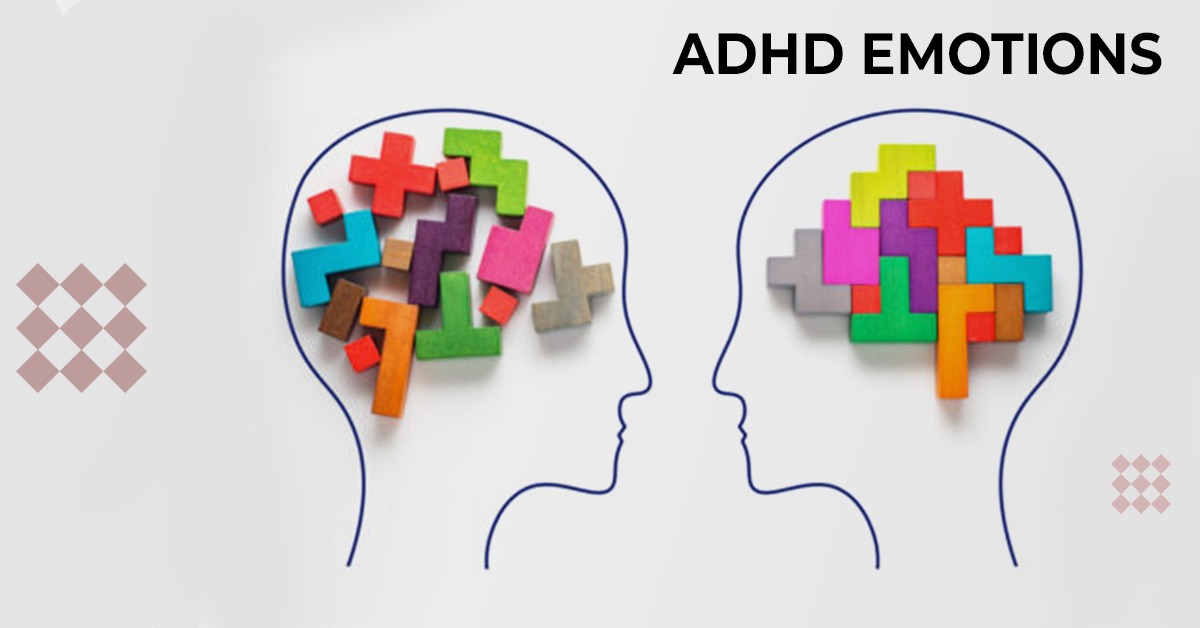Steps for Managing ADHD emotions
Anyone who has heard of attention deficit hyperactivity disorder (ADHD) is aware that people with ADHD have difficulty directing and controlling their attention. What is less well-known is that ADHD can also create issues controlling one's emotions, a condition called emotional dysregulation by psychologists. According to clinical studies, up to 70% of adults with ADHD have emotional dysregulation. More than half of ADHD adults suffer from anxiety, and nearly half have been treated for depression at some point in their lives, therefore it’s very important to get a diagnosis of ADHD from the right place. ADHD is also associated with fits of uncontrollable rage.
Before we go into how to overcome emotional dysregulation, let's start with a more fundamental question: What exactly does "emotional regulation" mean? Emotional control permits a person to avoid reacting inappropriately to emotional situations. It enables individuals to control their emotional outbursts and reply with greater calm and clarity in difficult situations. A person's emotional regulation abilities allow them to adjust their emotional state to better fit with their goals. In contrast, emotional dysregulation is the inability to match one's emotions with one's goals. Consider the case of an office worker named John who is competing for a promotion.
If he loses his temper at meetings on a regular basis, his supervisor may be hesitant to offer him more authority. It will be easier for John to achieve his goals if he instead employs emotional regulation skills to calm his emotions and handle his ADHD symptoms. Emotional dysregulation is related to a wide range of functional impairments in adults with ADHD, which is not surprising. According to research, those who are unable to regulate their emotions are more prone to injure others and participate in self-harming behaviors. They are also more likely to drop out of school, divorce, commit crimes, be involved in traffic accidents, and make poor financial decisions.
How to regulate emotions with ADHD?
According to preliminary studies, those who treat their emotional dysregulation concerns, particularly during therapy had better outcomes. We've compiled a list of ten emotional management practices for adults with ADHD. We recommend Consulting with an ADHD psychiatrist in your area. If you are looking for the best psychiatrists in your area, type ADHD psychiatrists near me. Consulting a good psychiatrist will help you to determine which ones work best for you.
Examine yourself in both neutral and emotional settings. How and how swiftly do you react? How would you categorize your emotions? Do your reactions assist you in achieving your objectives? Is your mood generally neutral, or do you have an irritable streak? Because many persons with emotional dysregulation have difficulty identifying their feelings, self-monitoring is the first step toward properly treating this disease.
Everyone understands that a tired toddler is a grouchy toddler, but for some reason, adults are underestimated when it comes to the effects of sleep deprivation. Adults have a tendency to hide their feelings. However, when we are sleepy, hungry, hot, cold, or sick, we become just as irritable as toddlers. Get enough sleep, exercise on a regular basis, and watch what you consume. You can support your psychological health and boost your ability to withstand stress by maintaining your physical health.
According to research, as a person's ADHD symptoms improve, so does their ability to regulate their emotions. When your ADHD symptoms stop interfering with your life, you will have fewer reasons to be upset.
Read ADHD books and participate in online forums. Do everything you can to reduce the emotional impact that ADHD has on your life.
When we are stressed, we tend to have negative thoughts. We are concerned about the future and linger on the negative events of the past. You can avoid being swept away by negative thoughts by anchoring yourself in the current moment.
Focus on your five senses and pay attention to the environment around you the next time you find yourself thinking about the past or the future. Consider doing a grounding practice or going through a guided meditation. You might want to start a daily mindfulness practice to prevent unpleasant thoughts and emotions from spiraling out of control in the future.
Although research in this field is ongoing, preliminary findings suggest that medication may aid with emotional dysregulation. Because untreated ADHD symptoms can increase the number of stressors a person must cope with, treating those symptoms with stimulant medication can improve emotional well-being. Furthermore, some psychiatrists advocate treating emotional difficulties directly using SSRIs or other mood-regulating medications.
Consult with an ADHD specialist and a professional psychiatrist who can provide you with a private ADHD assessment so that they can help you out with medication that will address your specific cluster of symptoms.
You may have given up on better controlling your ADHD as an adult. You'll figure out how to improve your performance while still feeling good about yourself with the help of a neurodiversity-affirming adult ADHD specialist.
